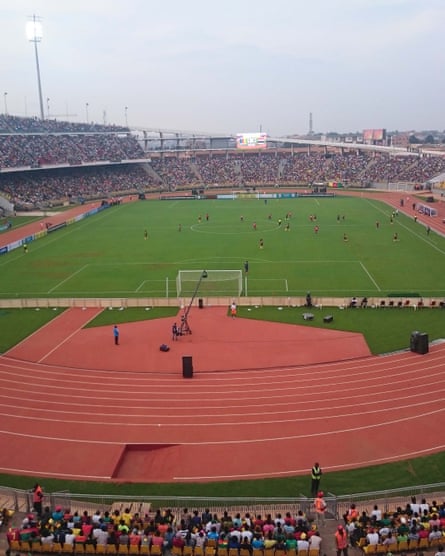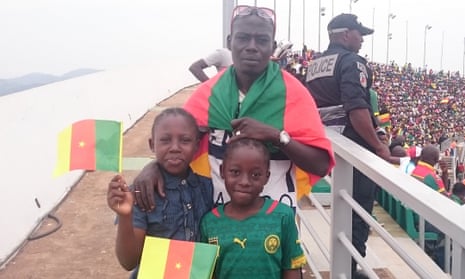The Africa Women Cup of Nations has opened, with the host nation Cameroon hoping to use the football tournament as a springboard to build its tourism industry.
Security was tight for Sunday’s opening ceremony at the Ahmadou Ahidjo stadium in Yaoundé, which was attended by the country’s autocratic president, Paul Biya, and his wife, Chantal. Cameroon’s army is battling Boko Haram in the north and there are concerns that militants could strike in the capital.
Staging the 12th African women’s tournament in Cameroon has been a pet project of Biya, who has pledged to improve infrastructure and attract investment, but has attracted criticism for allowing rampant corruption to hinder the country’s development.
Speeches and banners around the stadium praised Biya for his “major accomplishments” in placing sport at the “heart” of government. The president has led Cameroon since 1982, controversially scrapping presidential term limits in 2008, putting him in the club of Africa’s “presidents for life”.
Before the tournament the government built a stadium in the city of Limbe and increased the capacity of the Yaoundé stadium to 40,000.
Simon Faustin Mvongo, who oversaw the refurbishment, said ticket prices had been capped at 1,000 Cameroonian francs (£1.30) to make the event more affordable. By 12pm on Saturday – three and a half hours before the opening match, Cameroon v Egypt, kicked off – it was almost full.

People came early because they knew about the security screenings, said Mvongo, who was part of a team that visited Euro 2016 to learn from how France had dealt with hosting a major football tournament after two large terror attacks.
Flags adorned cars and motorbikes driving to the match; a bus strike earlier in the week that had threatened to disrupt transportation seemed to have been resolved.
The national team, known as the Indomitable Lionesses, won 2-0 in front of a sea of almost exclusively yellow, red and green flags. An Egyptian flag was unfurled for a moment during the first half but quickly disappeared.
Fans of the nation that gave birth to Samuel Eto’o and Roger Milla love football, and their enthusiasm seemed no dimmer than at a men’s match.
“Women’s football is popular in Cameroon. We all know the team and we know what they do,” said the 26-year-old student Marshal Efa Beko’o, one of the 120 volunteers handing out flags and helping to steward the opening ceremony.
While the announcement that Eto’o was in the stadium got the biggest cheer during the opening ceremony, the Lionesses striker Gaëlle Deborah Enganamouit got the biggest cheer on the ball. Enganamouit plays professionally in Europe and was recently shortlisted for the BBC women’s player of the year.
The government says one of main legacies of the tournament is an investment of €212m (£180m) from the Italian Bank Insesa Sanpaolo for a multi-purpose sports stadium in Yaoundé that will host the men’s Africa Cup of Nations tournament in 2019, and be named in honour of Biya.
Mvongo admits that more needs to be done to get as many young girls playing as young boys across the country. “Football can be the route out of so many bad [socioeconomic] situations,” he said.
But he does think more tourists will start to visit the country after the tournament. Cameroon is known as “Africa in miniature” due to its vast ethnic diversity. While the south is considered safe, some say that the terror threat needs to be neutralised before tourism can find its feet.
Ademo Uyauya, a fan who brought his young football-playing daughters, aged eight and 12, to the match, was hopeful. “We want to show everyone that Cameroon is open and ready to welcome visitors,” he said, making a peace sign with his hands.
